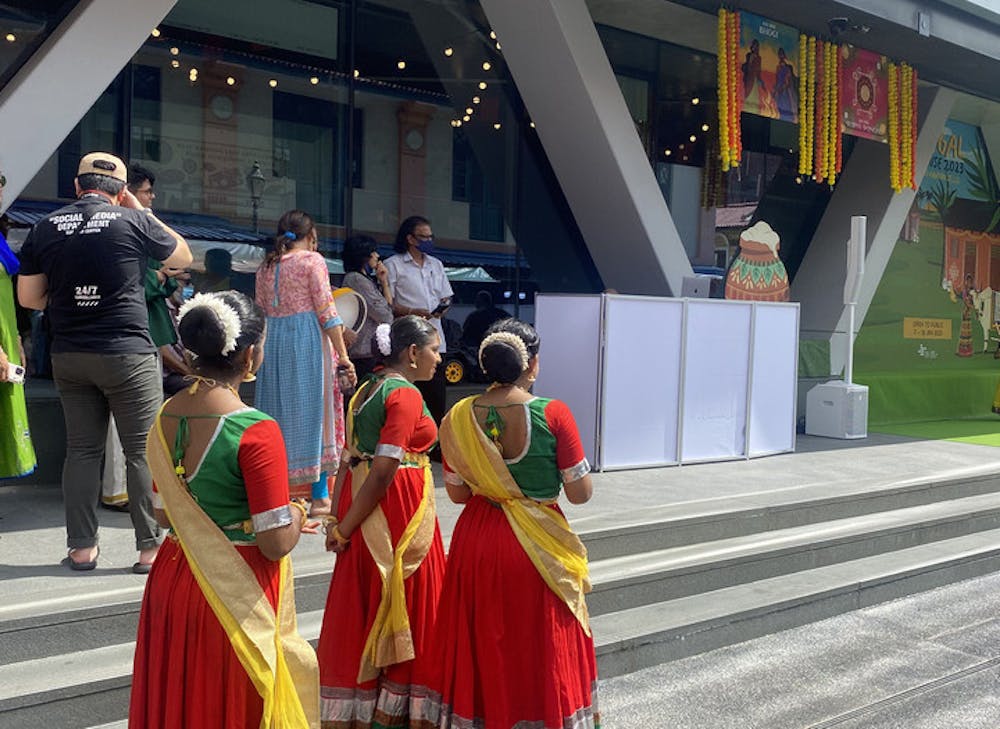Elon has been ranked first in undergraduate students who participate in study abroad for the 18th time. Many of these students are women with varying experiences, often dependent on the culture within the country of their choice.
Allegra Laing, executive director of the Global Education Center, encourages all female-identifying students to study abroad. She advises them to engage with other female-identifying students from the country they are staying in to learn how to safely navigate that specific culture.
“It's also important for female-identifying students to practice cultural humility while abroad,” Laing said. “Sometimes, students have deficit-model thinking toward women in other cultures. Be prepared to listen thoughtfully and be challenged by what feminism means in other countries.”
Deficit model thinking is the assumption that someone is hindered in achieving due to socioeconomic, cultural and social factors.
Laing also takes into consideration that other identities, such as race, religion, socioeconomic status and sexual orientation, can also play into a student’s experience abroad.
“Study abroad experiences are not a monolith,” Laing said. “There is much work to be done to elevate the stories of students from historically excluded communities who choose to study abroad.”
Senior Bethany Marzella addressed some of the misconceptions of studying abroad in a Middle Eastern country. She said though there were differences in treatment, she felt that this was also typical in the U.S., disproving many assumptions Americans hold.
“Many people in the United States just generalize the Middle East as awful to women without knowing the full context or experiencing that culture and understanding it.”
Marzella said after the Israel-Hamas war broke out on Oct. 7 while she was in Jordan, her friends and family were concerned, but as an American she did not face any backlash.
“As time went on, we realized that they really don't care about us,” Marzella said. “You're like, they're mad at the government. They know that we're not part of the government. We’re 20 years old. And on top of that, we're willingly just hanging in Jordan, studying abroad.”
Senior Savannah Willette, who traveled to Thailand and Singapore talks about the gender divide, particularly in the workplace. When Willette was visiting a law firm in Singapore, the instructor opened the presentation for questions.

“I asked him, ‘How would you describe, with your law firm, the gender diversity within the workplace?’” Willette said. “He just kind of looked at me and giggled. He was like, ‘Well, my wife used to work with me and was a lawyer, but then she had kids. How can you be a good mother and a good lawyer at the same time?’”
When asked about the safety of Thailand and Singapore, Willette said there was a noticeable difference between the two.
“In Singapore, definitely. It is one of the safest countries in the world to live in,” Willette said.
As for Thailand, her experience was different.
“I remember one morning I went to get coffee alone. I just went across the street, but I had men grabbing at the bottom of my pants,” Willette said.
Despite visiting different countries and experiencing different cultures, both Marzella and Willette left their experiences feeling the same.
“Do it,” Marzella said. “Even though there are going to be differences, they're not going to change your experience to be negative at all. And you'd still be gaining a huge experience, just getting to witness firsthand, it's something that you should learn from and should go through to understand the cultural context.
Willette cautions that stepping out of your comfort zone is not an easy thing to do but still worth it.
“It's easier said than done. But, don't let your gender deter you from visiting those places. It's really beneficial for personal growth, and a cultural kind of experience. So don't let that stop you,” Willette said.


